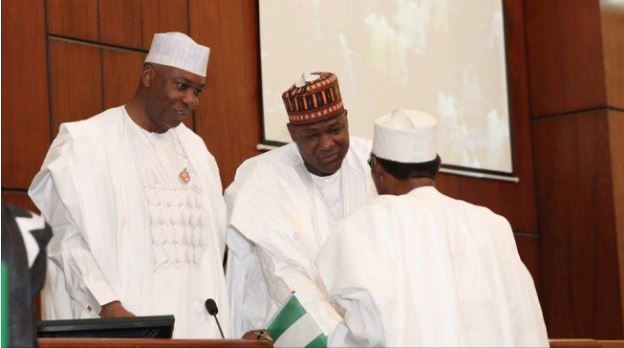
On Sunday, April 9, 2017, it was 2015 again. The atmosphere across social media was that of victory, joy, happiness and most importantly, unity of purpose. I stepped out into the Lagos night life, only to see men and women, boys and girls, restating one name, which had suddenly become synonymous to victory — Efe.
The memories of April 2015 flooded my thoughts again; then, the name synonymous with victory was Buhari. The general had just been named winner of the too-close-to-call 2015 presidential election. The nation was in wild jubilation.
The voice of the people had become the voice of God. The long campaign which started years before the last ballot was cast had finally thrown up the impossible. Buhari, after four attempts, made history as the first opposition candidate to unseat the incumbent president.
All that fireworks are gone now, but the lesson the Big Brother Nigeria show teaches is that Nigerians can rally around a cause and make it happen — for good or bad. Nigerians threw their weight behind Efe Ejeba — who would later win the reality TV show with 57.61 percent of about 26 million votes cast — and succeeded.
This was an “election” without individual polling centres where results will be polled individually, and collated transparently, yet, one thing was clear: if Efe was not named winner on Sunday, the Nigerians I saw across viewing centres and the streets of Ikeja, Lagos, were ready for a showdown with the organisers of the show.
And this is a vivid lesson for 2019.
HISTORY OF ELECTRONIC VOTING ACROSS THE WORLD
On March 30, 2017, the Nigerian senate amended the Electoral Act 2010 to include electronic voting for 2019 elections and beyond. This, in some sense, is a laudable idea which is expected to make the polling process easier in the next elections.
However, there are questions every stakeholder must answer in seeing to the blissful reality of a Nigeria where e-voting will not just be in the pages of an electoral act.
Electronic voting in the world dates back to the early 1960s, and was used in some places for the historic 1964 elections, which brought Lyndon Johnson into office. From 1964 till date, the US employs both manual and electronic voting systems in the conduct of their elections.
Australia, UK, Estonia, Belgium, Venezuela, Germany, Finland, Brazil and a number of other countries have also employed the same means in making democratic decisions. In all these countries however, one thing is striking; not a single one of them graduated into electronic voting systems without a pilot phase or trial election.
The US started with seven counties, the UK had pilot phases from 2000 to 2006, and in those pilot programmes, voting was done manually but counting and other collation processes were done electronically. Venuezuela had its first e-voting in a presidential election, back in 1998.
Clearly, Nigeria is late to the party, but lateness is not a problem, getting it right when we show up is the non-negotiable.
ENTER NIGERIA’S 2019 ELECTRONIC PRESIDENTIAL ELECTION
For Nigeria, the electoral act amended by the senate does not state explicitly, if Nigeria will be going through a pilot programme, where and when? You may say the Independent National Electoral Commission (INEC) and the judiciary would work together to interprete the provisions and plan out how the nation will proceed. As much as I like to subscribe to that school of thought, my hindsight says otherwise.
I know some electronic auditing firms are already making frequent visits to the powers that be to handle the electronic parts of the 2019 elections. They promise that none of their systems will be hacked, that no electoral figures will be manipulated, and that the voice of the people will be heard in every election conducted using their soft and hardware components.
The questions Nigeria is failing to ask herself at this time are; Do we have a plan for electronic voting in the next election? Can the 2018 gubernatorial elections be our pilot programmes? Do we have the money to put systems in place for e-voting?
Speaking of cost, INEC said Nigeria spent N108.8 billion on 2015 elections. UK-based Westminster Foundation for Democracy said the core cost of $547 million (N166.8 billion) was spent by INEC, while political parties and their candidates spent between $1.5 billion and $2 billion. With nearly N166.8 billion spent by INEC for 2015 elections, an electronic 2019 election will gulp even more.
With over N200 billion earmarked for census in 2018, and another N200 billion for election preparation in the same year, will the government have enough money to run other projects asides counting Nigerians and preparing for 2019 political drama?
If we get past cost issues, can we get Nigerians to trust an electronic process we have not started educating them about two years to the next election? How do we ensure that the politicians who passed these laws do not manipulate the systems to have e-voting unduly favour them? How do we ensure that the US-Russia drama of electronic voting does not surface in our elections?
Whatever we decide as a nation, let us have the big brother example in our minds; electronic voting or not, Nigerians are more aware, they will know who they voted for and will revolt if the voices are gagged half-baked by e-voting systems.
Follow us on twitter @jimidisu
END

Be the first to comment